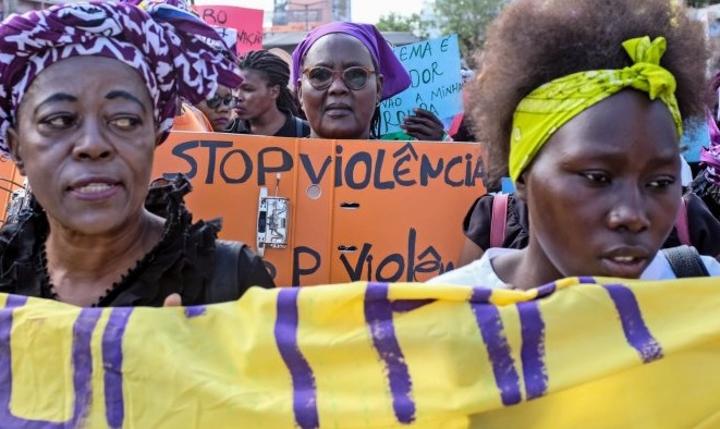Africa-Press – Mozambique. Clinical psychologist and deputy police commissioner of the Republic of Mozambique Lurdes Mabunda says that domestic violence in the country arises from results from “toxic cultural practices”, and does not discriminate between social classes or academic status.
“We are all potential victims of domestic violence, because it is a practice with indiscriminate force, which does not discriminate on the grounds of social class or academic status,” Mabunda told Lusa regarding her new book “X-ray of Domestic Violence in Mozambique: The Inside Report”.
The book’s 237 pages and seven chapters place women as the main victims of domestic violence, and indicates the patrilineal system of Mozambican communities as the main cause of the suffering inflicted on women.
“In the period between 2015 and 2019, more than 50,000 complaints of domestic violence were filed by women at police offices dealing with this matter, and only 12,004 by men. These numbers amply demonstrate the feminization of domestic violence,” she emphasised.
Lurdes Mabunda further warned that a perception prevails that “institutionalised numbers” are far from reality, because “too many dark numbers” are left out. (In criminology and sociology, the dark or hidden crime figure is the amount of crime which goes unreported or undiscovered).
“From birth, men are taught to have a relationship of possession over women and to use their physical superiority as an advantage to enforce relationships of dominance,” she explained.
On the other hand, she continued, women are trained to be submissive and subservient to men, conditions that perpetuate domestic violence in Mozambican households.
“There are countless cases of families pressuring victims to withdraw complaints of domestic violence, because it is normalised, even though it is a crime,” the assistant commissioner of the Police of the Republic of Mozambique maintained.
The psychologist noted that domestic violence is also enhanced by women’s economic submission, with victims living with their aggressors because of the economic and financial security they provide.
Mabunda advocated a general mobilisation against domestic violence, involving education, churches, community leaders and public and state institutions.
“Today’s child will be a potentially violent adult if this child is not raised for marital peace and family harmony,” she emphasised.
Mozambique has taken important legal steps, she continued, but there are still imperfections to be corrected.
“The law on domestic violence treats women and men equally, when the main face of this drama is female,” she said.
The process of criminal accountability for domestic violence should also have its own form, given the prevalence of this type of offence, she added.
Mabunda also warned of the deficiency of current law on domestic violence, which does not include children and the elderly, who are also victims of abuse in relationships with family members.
Mabunda was advocating greater investment in mechanisms to protect victims, noting that, in 2019, the country had only 323 domestic violence assistance offices. These structures did not have facilities to shelter victims, who are often forced to go back home to live with their aggressors, even after filing a complaint with the police.
Lurdes Mabunda, who holds degrees in both Clinical Psychology and Law, was head of the Office of Assistance to Families and Victims of Domestic Violence in Maputo.
For More News And Analysis About Mozambique Follow Africa-Press






